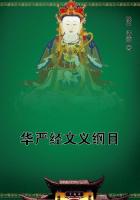"And the past, and its dear histories, and youth and its hopes and passions, and tones and looks, for ever echoing in the heart and present in the memory--those, no doubt, poor Clive saw and heard as he looked across the great gulf of time and parting and grief, and beheld the woman he had loved for many years." "The great gulf of time, and parting, and grief,"--some of us are on the farther side of it, and our old selves, and our old happiness, and our old affections beyond, grow near, grow clear, now and then, at the sight of a face met by chance in the world, at the chance sound of a voice. Such are human fortunes, and human sorrows; not the worst, not the greatest, for these old loves do not die--they live in exile, and are the better parts of our souls. Not the greatest, nor the worst of sorrows, for shame is worse, and hopeless hunger, and a life all of barren toil without distractions, without joy, must be far worse. But of those myriad tragedies of the life of the poor, Thackeray does not write. How far he was aware of them, how deeply he felt them, we are not informed. His highest tragedy is that of the hunger of the heart; his most noble prose sounds in that meeting of Harry Esmond with Lady Castlewood, in the immortal speech which has the burden, "bringing your sheaves with you!" All that scene appears to me no less unique, no less unsurpassable, no less perfect, than the "Ode to the Nightingale" of Keats, or the Lycidas of Milton. It were superfluous to linger over the humour of Thackeray. Only Shakespeare and Dickens have graced the language with so many happy memories of queer, pleasant people, with so many quaint phrases, each of which has a kind of freemasonry, and when uttered, or recalled, makes all friends of Thackeray into family friends of each other. The sayings of Mr. Harry Foker, of Captain Costigan, of Gumbo, are all like old dear family phrases, they live imperishable and always new, like the words of Sir John, the fat knight, or of Sancho Panza, or of **** Swiveller, or that other Sancho, Sam Weller. They have that Shakespearian gift of being ever appropriate, and undyingly fresh.
These are among the graces of Thackeray, these and that inimitable style, which always tempts and always baffles the admiring and despairing copyist. Where did he find the trick of it, of the words which are invariably the best words, and invariably fall exactly in the best places? "The best words in the best places," is part of Coleridge's definition of poetry; it is also the essence of Thackeray's prose. In these Letters to Mrs. Brookfield the style is precisely the style of the novels and essays. The style, with Thackeray, was the man. He could not write otherwise. But probably, to the last, this perfection was not mechanical, was not attained without labour and care. In Dr. John Brown's works, in his essay on Thackeray, there is an example of a proof-sheet on which the master has made corrections, and those corrections bring the passage up to his accustomed level, to the originality of his rhythm. Here is the piece:-"Another Finis, another slice of life which Tempus edax has devoured! And I may have to write the word once or twice, perhaps, and then an end of Ends. [Finite is ever and Infinite beginning.]
Oh, the troubles, the cares, the ennui, [the complications,] the repetitions, the old conversations over and over again, and here and there all the delightful passages, the dear, the brief, the forever-remembered!
"[And then] A few chapters more, and then the last, and behold Finis itself coming to an end, and the Infinite beginning.""How like music this," writes Dr. John Brown--"like one trying the same air in different ways, as it were, searching out and sounding all its depths!" The words were almost the last that Thackeray wrote, perhaps the very last. They reply, as it were, to other words which he had written long before to Mrs. Brookfield.















